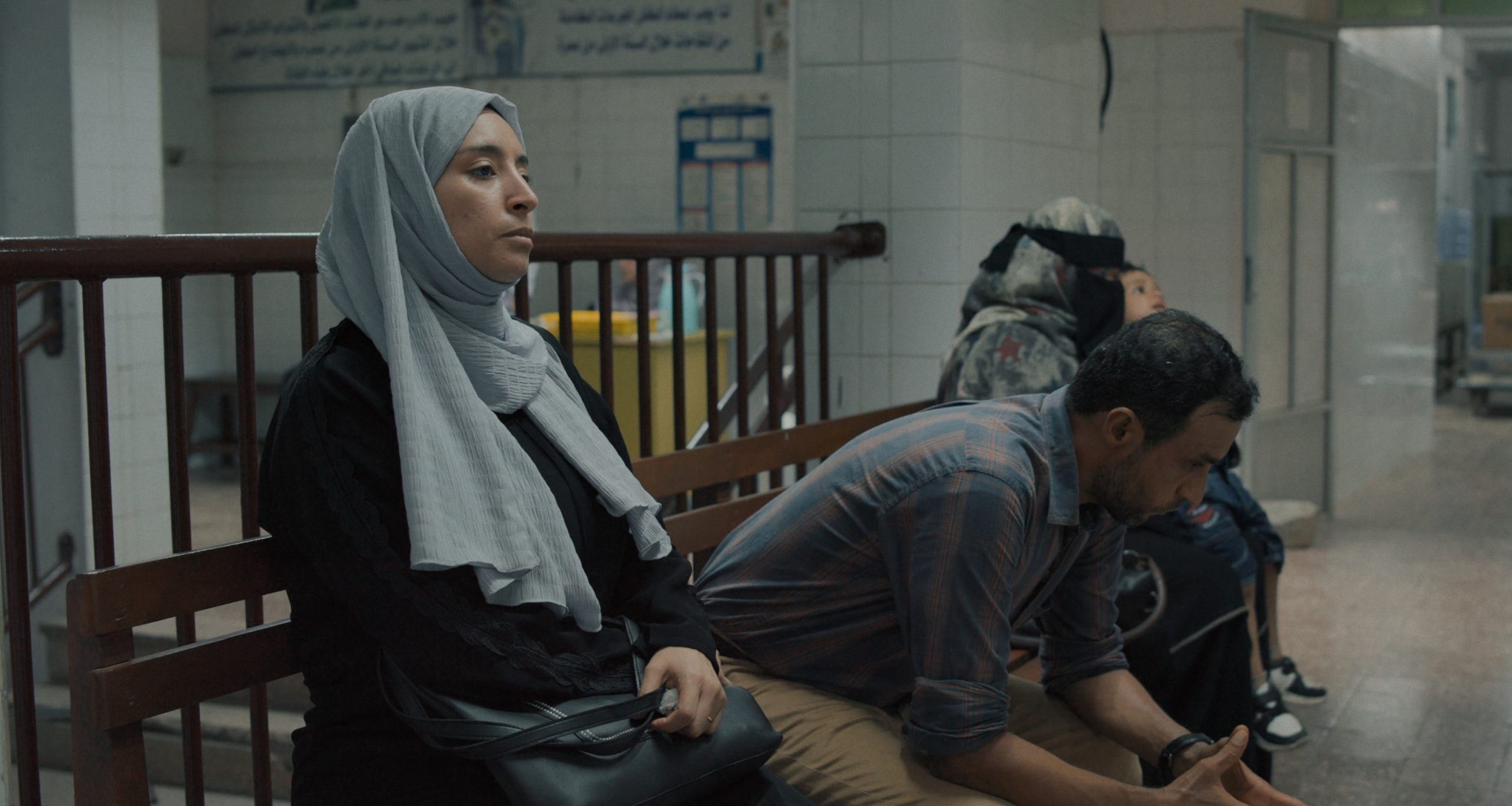Amr Gamal’s film, The Burdened, uses the onset of the civil war that erupted in Yemen in 2015, with the incursions of the Houthi militants, to explore its harrowing long shadow over the country. Opening in the city of Aden in 2019, the film revolves around a family of five trying to make ends meet after being rocked by a spate of recessions and extreme financial precarity in the aftermath of the war. Ahmed (Khaled Hamdan) had a job at one of the leading television channels in Aden, but it has been months since he has had no work, and his salary stalled.
He lives in a modest apartment with his wife and three kids but feels increasingly cornered in his dire financial straits. Their son’s admission into school has spiked the stress of managing funds with its inflated tuition fees. His wife, Isra’a (Abeer Mohammed), questions why the school demands such high fees when there’s a prevailing unemployment scenario in the country, with many laid off or sitting ducks waiting for their salaries to roll in. Unable to pull it together, Ahmed doubles as a driver to keep his household running, but he is also willing to offer favors to his customers, giving free rides if they cannot pay for more than one of them.
Ahmed tells his wife they have to relocate to a humble dwelling since their landlord started demanding a hike in their rent. They check out a new place that is rundown but assure themselves it will be just as fine with a fresh coat of paint. To exacerbate the tight situation, Isra’a becomes pregnant once again. Both are fully aware they simply cannot afford another child right now. However, they are up against a religiously determined framework that governs their lives and those of their friends and well-wishers. That an abortion is tantamount to heresy is the unspoken diktat ingrained in almost everyone around them.
How do the couple then clobber to lead a life of dignity in the limited space, under the constraints of religious and political imperatives? Ahmed gets prone to bursting at his wife. Isra’a is exceptionally patient and understanding of his overbearing circumstance and how he is trying to do his best, but also reminds him what are absolutely unacceptable behaviours and the limits of his exploding at her even in his state of distress.

The war has also benefited some, such as the husband of Isra’a’s sister. Everyone in the family gloats over him, who used to be ridiculed but now, armed with mighty political connections, has enough to flex and get by comfortably. Isra’a is reluctant to ask her family for help, especially because it hurts Ahmed’s ego. Isra’a reaches out to Muna (Samah Alamrani), her friend and doctor, for assistance and counsel in terminating her pregnancy, despite it clashing directly with Muna’s strict religious obeisance.
Pushed into desperation, Isra’a takes the chance anyway. However, it is not just Muna’s personal beliefs that chafe against the couple’s desire. There’s the overarching sense of taboo and restriction that surrounds the couple’s want of abortion. Severe judgment is hurled at Isra’a when she confides in her own sister about it, who very well knows how difficult it has been for Isra’a and Ahmed lately. Empathy is preceded by the presumed religious code that views abortion as blasphemous.
Gamal, who has also co-written the film with Mazen Refaat, underlines a stark portrait of the many blows the civil war rained on everyday life in Yemen. Security personnel patrol the streets with mobility brimming with unchecked authority. A military vehicle barges into Ahmed’s, but he is wise enough not to ruffle any feathers by hitting back. Power cuts are rampant, and people have to line up for water dispensed by tankers. These daily struggles are as enmeshed into the narrative as the inner dilemma Muna is stricken with. She wants to help her friend but is alarmed and full of trepidation at the thought of transgressing tenets that have been long enshrined within her.
Both the leads, Hamdan and Mohammed, are excellently nuanced in eliciting the tussle and tension stemming from the enormous strain the couple finds themselves under. Hamdan especially nails a scene where his character breaks down and is apologetic to his wife after lashing out at her. As Isra’a consoles Ahmed, who laments his uncharacteristic actions, the gravity of the political climate impinging on the personal is felt in its direct, searing force.




![If Beale Street Could Talk [2018] Review: Go Listen To This Film](http://www.highonfilms.com/wp-content/uploads/2018/12/If_Beale_Street_Could_Talk1_HOF-768x384.jpg)

![How To Train Your Dragon: The Hidden World [2019] Review – Graceful Landing](http://www.highonfilms.com/wp-content/uploads/2019/03/How-To-Train-Your-Dragon-The-Hidden-World-Post-Credits-Scene-768x392.jpg)

